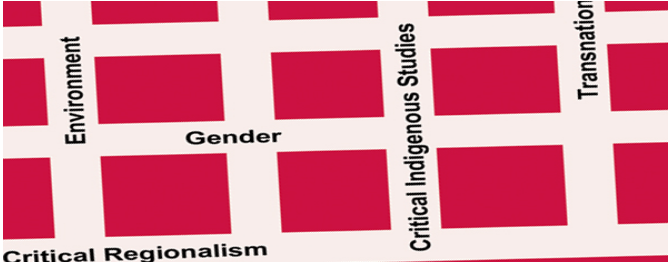
American Studies ETDs
Publication Date
4-17-2017
Abstract
In this research project I situate black experience in the mid-sized post-industrial city of Denver, Colorado within the city’s colonial history in order to highlight some broader historical, global as well as local and national developments that, although seemingly unconnected, have a significant impact on urban social life today, in the case at hand, black urban experience. As people who have been displaced by the main axis of modern European global capitalist expansion: colonialism and slave trade, Native Americans, African Americans and recent African immigrants in Denver occupy a globalized socio-historical space of Euro-American socio-political domination that, in complex ways, stretches from Sand Creek, the scene of the 1864 Massacre of hundreds of peaceful Native American inhabitants of Greater Denver region by U.S. Federal troops, to Africa where African Natives were also violently colonized and displaced by modern European global capitalist expansion and, through the transatlantic slave trade, forcibly transported to the Americas.
Drawing on the concept of the “colonial present” I show how U.S. settler colonialism and the related chattel slavery cannot be regarded merely as events of the past, but as marking the enactment of Euro-American structures of domination that continue to shape sociality in present. It is within the frame of Denver’s colonial present that I argue that the colonial disdain and hostility that led to the violent displacement of Natives of Greater Denver region centuries earlier as represented by the Sand Massacre of 1864, cannot be separated from the current brutal treatment of black youth by the city’s law enforcement as well as, the equally devastating displacement of economically vulnerable black Americans and African immigrants by Denver’s urban renewal projects, as illustrated by the city’s downtown plan that is curved out of historically neglected black downtown neighborhoods.
It is within this colonial history of violence against Native American and a long history of racial discrimination against blacks that Denver has the problem in representing itself as a culturally diverse and welcoming city (cultural hub of the Rocky Mountain West) which is an economic necessity for post-industrial cities world-wide. Focusing on three sites that can be significantly linked to the cultural construction of Denver’s modern image or identity: the historic Five Points; the Denver Downtown Plan & the Denver Art Museum (DAM), this research focuses on how dominant Euro-American intellectual discourses, in the case at hand, the global market-oriented urbanist discourses are mobilized to politically contain the past and present presence of blacks and indigenous people through the cultural construction of the modern image of Denver as a culturally diverse, socially stable and, therefore, culturally unique landscape. Such dominant discourses and, therefore, the modern image of Denver, is inevitably contested by uncomfortable and potentially destabilizing colonial histories of the place and, consequently, the social instability and identity crisis characteristic of globalized post-industrial urban social spaces.
Denver is selected for this study because of its colonial legacy of violence against Native Americans as well as a long history of racial discrimination of African Americans and, more recently, the hostility that has greeted the arrival of new African immigrants to the city. Denver also has a noticeable ambition and robust cultural projects that aim at constructing the city’s modern image as a global city. The highly visible and evocative image the newly redeveloped Hamilton Building of the Denver Arts Museum that was designed by a world-renowned architect, Daniel Libeskind and opened to the public in 2006, is one of the city’s most visible global market-oriented flagship cultural projects.
Language
English
Keywords
colonial present, post-industrial, globalized social space
Document Type
Dissertation
Degree Name
American Studies
Level of Degree
Doctoral
Department Name
American Studies
First Committee Member (Chair)
Alexander S. Lubin
Second Committee Member
Alyosha Goldstein
Third Committee Member
Kirsten P. Buick
Fourth Committee Member
Michael L. Trujillo
Recommended Citation
Matjaka, Webster. "From Sand Creek to Somalia: Black Bodies in Denver’s Post-Industrial Urban Cultural Re-Imagination." (2017). https://digitalrepository.unm.edu/amst_etds/53
Included in
American Material Culture Commons, American Popular Culture Commons, Other American Studies Commons
